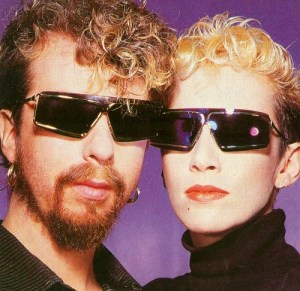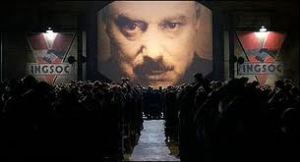 The Walking Dead, Compendium One by Robert Kirkman, Charlie Adlard, Tony Moore & Cliff Rathburn
The Walking Dead, Compendium One by Robert Kirkman, Charlie Adlard, Tony Moore & Cliff Rathburn
Zombies are boring.
There. I said it. And I’m not ashamed.
They are, though. Zombies have no real motivation, they have no goals other than to kill all humans. They are mindless, a kind of twisted force of nature whose great terror lies in their sheer numbers and their unstoppability. As a concept, zombies are interesting, and as a symbol or a metaphor there’s a lot you can do with them, but the zombies themselves are kind of dull. They lurch about, slowly decaying, looking for people to devour. No one ever made a best-selling book or a hit movie with a zombie protagonist. [1]
Think about it: every zombie story rests on the same basic plot. The dead have risen and a small band of living survivors tries to find safety in a world that is actively trying to kill them. That’s it. Sure, the details may vary – fast zombies or slow ones, a cure or no cure, they eat brains or they’ll eat anything, trapped in a mall or a farmhouse – but the foundation of the story is the same, and woe betide the writer who strays too far from the formula. Writing a zombie story means agreeing to adhere to a set of predetermined rules, which allow only a little room for straying.So what is it that makes zombie stories so popular? Why do people love books like this one, or Pride and Prejudice and Zombies or World War Z? Why do movies like Shaun of the Dead and Night of the Living Dead and even Resident Evil get people so excited? It certainly isn’t because of the zombies, although it is always fun to see the special effects improve.
We read and watch zombie stories because we love the survivors, and it is they who make or break a zombie story. The more closely we can identify or sympathize with a survivor, the more interesting and horrifying the story becomes for us. They are a great demonstration of the variety in the human condition, and illuminate new and interesting aspects of humanity every time. In this case, we are given Rick Grimes as our protagonist, a police officer from a small town in Kentucky who gets shot on duty and wakes up a month later in the hospital to find the world has been given over to the dead.
As he looks for his wife and son, Rick finds himself leading a band of survivors in their search for a place of safety away from both the dead who wish to devour them and the living who wish to kill them.
What makes this a really fun – and terrifying – read is that Kirkman carefully paces the plot so that we never really get much time to rest. A pattern quickly starts to emerge in the story, with Rick and his people finding safety, a kind of equilibrium between running for their lives and resting, only to have that equilibrium disrupted. Each time the interval gets longer and longer, both in terms of page count and story-time, but each time you know what’s coming. The hardest moments are the most peaceful ones, when they have found a refuge from the horrors of the world because you know it isn’t going to last, and you know that when the balance is finally undone, it’s going to be worse than before. Kirkman uses this pattern and this expectation to his advantage, creating a tight and tense narrative.He also provides us with a look at some of the ethical problems that arise from a world where the dead outnumber the living. In nearly every zombie story ever written, the living immediately start killing the zombies, but is that the right choice to make? We don’t know all the facts. We don’t know what caused this outbreak, whether it can be cured, or even whether the people affected might just get better. We just start taking head shots in ignorance, but might it not be worth it to try and learn something about these “monsters?” [2]
There’s also the question of how to organize a post-outbreak society. What kind of person or people should run the survivors’ societies? Is this an opportunity to remake civilization, or should the old ways be adhered to? How much leeway to we have in restarting the world, and what will that look like in the end? The characters in this story have to deal with how to define a family when one’s partner or parents or children could die at any time. They have a chance to redefine what is lawful and illegal, to toy with the notions of what is right and wrong, and to re-evaluate the role religion plays in their lives. It’s a chance to rebuild the world from scratch, and the characters in this story test those limits in interesting and sometimes unsettling ways.
And that’s assuming that the living will actually survive and thrive in a zombified world. This is a world where death is always only moments away. It is only a matter of time before the living survivors join the ranks of the undead, and the awareness of that fact is the classic existential puzzle with a little extra twist to it: how do you live when you know that you will die, and especially when you know the horror that your death will entail? One of the more heartbreaking moments is when one character gets killed, and Rick has to break the news to his young son, Carl. When he asks his son if he is upset, Carl replies, “No. People die, dad. It happens all the time. I’ll miss [him]… but I knew he was going to die eventually. Everyone will. Everyone.”That is an observation that, frankly, no child should ever have to make.
The characters in this story make hard choices and sometimes do terrible things in the name of survival. But, with very few exceptions, there are few characters that we cannot truly come to understand and identify with. Their decisions and their reactions make them richer, more interesting, which is what truly makes for a fascinating and engaging story.
The zombies are really incidental to all that.
As this is a comic series, I would be remiss if I didn’t mention the art, which is overall quite good. There were a few times when I had trouble telling some characters apart, but the high rate of attrition generally took care of that problem. The detail in the artwork is very impressive, though I can imagine there were more than a few times that Charlie Adlard cursed Robert Kirkman for setting a large part of the series in a locale with a prominent chain-link fence that couldn’t easily be ignored. As this is a horror comic, the art is sometimes horrifying, very graphic and quite satisfying without being gratuitous. Well, mostly without being gratuitous….It’s a really excellent book, though I do have one caveat if you’re planning to buy the compendium edition: get a reinforced reading harness, or rest the book on a solid piece of furniture with a low center of gravity. This is one of the densest books I’ve ever read, packing nearly five pounds of book into less physical volume [3] than the last hardcover installment of The Dark Tower, a fairly hefty book. I think the ink may contain uranium or something. So, take measures to prevent back injury and hernias when you read this and you’ll be just fine.
Many thanks to my brother Michael for knowing I would enjoy this, and I look forward to watching the AMC television adaptation.
————————————-
“But honestly… I just don’t know what anyone’s thinking. To me, that’s scarier than any half-rotten ghoul trying to eat my flesh.”
– Rick Grimes, The Walking Dead
————————————-
[1] Cue angry email pointing me towards exactly that book or movie in 3… 2… 1…
[2] Short answer: no.
[3] It comes out to 1.147 grams per cubic centimeter, which isn’t nearly as dense as it feels when it’s making the straps of your bag dig into your shoulder….










































